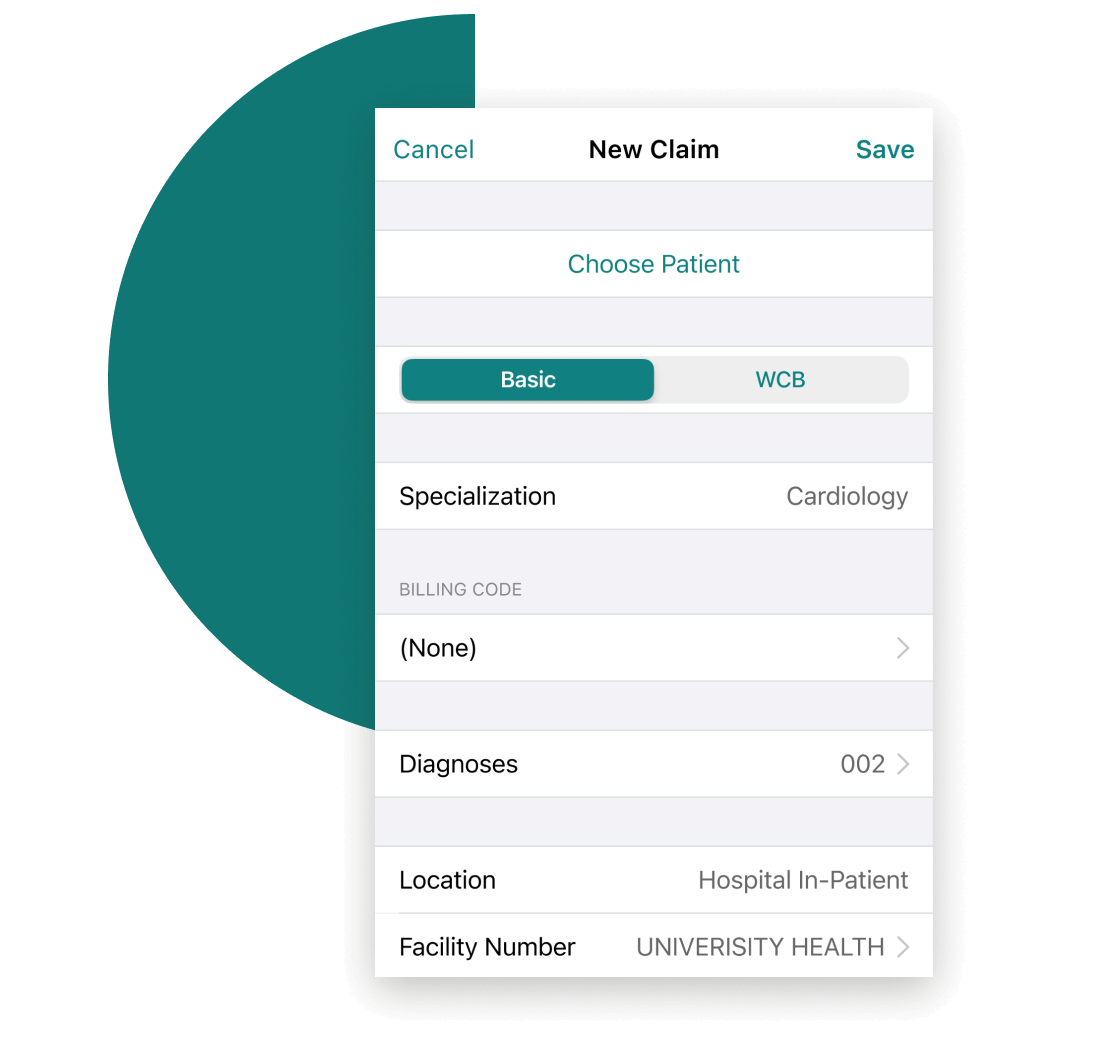There are a number of different types of medical practices – that is, the structure of a medical business – that physicians can choose to practice within. Whether you’re a resident starting out in medicine or an attending with many years of experience in your field, the type of medical practice you choose will have a lasting impact on your career and, ultimately, your life.
Below, we’ll look at some of these different types of medical practices: group practice (including associations and partnerships), solo or private practice, hospital-based employment, and locum tenens.
Group Practice
A group practice consists of two or more physicians providing medical care in the same facility. These physicians typically have different specialties, which provides the opportunity to collaborate and consult with others and refer patients when needed. In a group type of medical practice, all of the work and staff resources are shared, including running and administering the practice. If you’re thinking of opening up your own medical practice it’s important to remember that the group must agree on whether and how to divide its income before setting up.
Within group practices, different types of medical practices exist, like associations and partnerships. Until recent years, most group practices were associations, but with the popularity of alternate funding models partnership practices are now quite common.
Associations and Partnerships
An association is a legal agreement that specifies the degree to which expenses will be shared. These expenses can range from sharing only rent and waiting room costs to sharing all the costs associated with running a practice (such as staff, equipment, medical supplies, and office resources). The responsibility of expenses per physician is usually proportional to the amount of time they work in the office, though capital expenses such as rent and communications are often shared equally. Associates do not share income and are not professionally or legally liable to each other.
As an associate, you get the freedom and benefits of an individual practice while also enjoying economies of scale, in-house coverage, and team collaboration. For the most part, physicians in an association create their own schedules, share the costs and tasks associated with overhead and administration, and enjoy being part of a team.
In a partnership practice, just as in an association, you share expenses, but the difference is income and personal and medical liability are also shared. Each partner’s share of income and expenses gets detailed in a legally binding partnership agreement.
To save time, stress, and money, advance planning is required for any type of medical practice. To help with planning, both association and partnership contracts outline the responsibilities of and benefits for each associate or partner, along with obligations of the collective group. As well, these contracts address existing issues and potential problems by stating actions for common situations such as notice of termination and administrative management. Advice on contracts from an accountant and a lawyer is invaluable, and sometimes even required.
PROS of group practices:
-
Increased financial security and better control and flexibility of lifestyle (with shorter hours and on-call coverage, for instance).
-
Greater tolerance for financial risk than solo or private practices because you’d have a larger patient base.
-
Few or no startup costs if joining an existing practice.
-
Economies of scale occur, which can help negotiate and save money on overhead costs.
-
Dedicated resources to manage and run the practice relieves you from doing this alone.
-
Fixed-cost resources are shared (such as office automation technology, medical equipment, and communication tools).
CONS of group practices:
-
Autonomy and decision-making ability decrease as the group grows: less individual freedom and more influence from, or personality clashes with, the team can increase the risk of conflict around practice issues.
-
Larger practices may become more bureaucratic and policy-driven.
-
Resources and staff are shared.
-
Ability to rapidly grow income can be limited.
-
Greater chance of disagreement over decisions such as capital purchases and HR management.
Over the last decade or so, more physicians have moved away from solo or private practice (which we’ll discuss next) and into group practice. Group practice is gaining popularity because of changing medical and payment environments, and the efficiency and cost-effectiveness from sharing expenses for things like office space, medical equipment, supplies, and support staff. Keep in mind though, once a group exceeds seven or eight physicians, economies of scale often plateau.
For more on starting a practice check out our guide on How to open a Medical Practice in Canada.
Solo or Private Practice
Solo or private practices involve one physician working alone, without any partners. Typically, a solo practitioner serves a limited group of patients and is supported by just a small staff. This type of medical practice works well for physicians who wish to own and manage their own practice.
Physicians practicing alone usually opt for owning their own medical facility or leasing a medical office. Your location can determine the success of a solo or private practice. Because of significant need and less competition from other physicians, suburban or rural areas are often better suited for these types of practices. As well, some local hospitals affiliate with and support solo or private practices to help maintain a healthy patient base.
PROS of solo or private practices:
-
You’re free to design, grow, and develop your own practice in the exact work environment you please.
-
You control your relationship with your patients and can offer more personal care, usually resulting in more referrals and business.
-
You have your own dedicated staff and resources.
CONS of solo or private practices:
-
Greater startup and ongoing overhead costs compared to group practices.
-
Total responsibility for practice setup, overhead, staffing, and business operations. This may include:
-
Arranging medical care on weekends and in hospitals.
-
Significant work in developing insurance agreements and documentation for compliance regulations.
-
-
Huge financial risk from things like staffing and insurance costs and education debt; a small patient base and patient turnover or loss; and lost income caused by illness or vacation.
-
More work and longer hours with minimal peer support on-site.
Overall, the disadvantages of solo or private practice outweigh the advantages, mainly due to fewer economies of scale in operational costs. Residents are often trained in, accustomed to, and already enjoying a group environment. As well, a group type of medical practice is an important factor in succession planning because you have an in-house team of partners who can potentially accept your patients once you leave.
If you are leaning toward solo practice, we recommend to create a budget and have researched sufficient financial planning beforehand.
Hospital-Based Employment
Other types of medical practices are common in hospitals. Some hospitals purchase and manage existing solo or group practices, or directly hire physicians to work in their inpatient facility or ambulatory clinics. In hospitals, you can count on a predictable income and work schedule while enjoying a regular patient base and solid referral network. Also, you are less liable, and at lower risk, for legal complications.
On the other hand, hospitals don’t provide the same degree of freedom and autonomy that other types of medical practices do, as physicians are required to meet specific hospital standards. Physicians may experience a lack of connection to patients since they see many at a time. As well, the potential expectation that physicians become involved in hospital committee work is common.
PROS of hospital-based employment:
-
Administrative burden of running a practice is shifted to the hospital allowing you to focus more on practicing medicine.
-
Because hospitals tend to be large employers, they usually have more resources than solo or group practices. This usually means greater control of lifestyle is available, and broader support services and opportunities for education and training.
CONS of hospital-based employment:
-
You may not have much autonomy compared to other types of medical practices. For instance, schedules, productivity expectations, and policies and procedures may be developed without your input.
-
Potential inflexibility due to hospitals’ limitations of referrals and facilities.
-
Additional expectations such as serving on committees or participating in extra organizational activities.
Locum Tenens
Locum tenens (from the Latin phrase for “to hold the place of”) refers to physicians relocating for temporary employment to areas in great need of healthcare professionals. Solo or private practices, hospitals, and healthcare organizations often need locums, and this type of employment may offer higher pay than permanent positions.
PROS of locum tenens:
-
Working for a short period of time allows you to experience many practices and locations to discover what you prefer, without committing long-term.
-
Schedules are flexible as you choose where and when you’d like to work.
-
Offers higher pay and lower living costs than other practice types.
CONS of locum tenens:
-
Work is temporary and not always steady.
-
You may need to relocate to an area you’d prefer not to.
-
You’ll always be the “new” person and will be constantly introducing yourself.
-
You’ll always get new passwords and logins and you’ll need to deal with different EMR systems and management styles.
-
You’ll constantly see patients who are unfamiliar to you which means it will take extra time to familiarize yourself with the patient during a visit.
Since about 15 percent of the Canadian population does not have access to a regular medical doctor, there tend to be a lot of locum opportunities in Canada’s urban areas. However, many positions exist in rural areas, too — where the physician shortage is extremely high.
Conventionally, locums are quite common for physicians who are in their first 5 years of practice, or for physicians who are near retirement. But this mindset is changing and many physicians are choosing locum work for the better work-life balance it offers. If you’re thinking of locuming, the pros really outway the cons, especially for young families or if you’re new to practice.
Each different type of medical practice has its own unique features, advantages, and disadvantages which are crucial to consider before opening your own medical practice. Whatever career stage you may be at, choosing the right type of medical practice for your personality and what best suits your lifestyle and needs can greatly impact not only your career satisfaction but your overall happiness, too.
This article offers general information only and is not intended as legal, financial or other professional advice. A professional advisor should be consulted regarding your specific situation. While information presented is believed to be factual and current, its accuracy is not guaranteed and it should not be regarded as a complete analysis of the subjects discussed. All expressions of opinion reflect the judgment of the author(s) as of the date of publication and are subject to change. No endorsement of any third parties or their advice, opinions, information, products or services is expressly given or implied by RBCx or its affiliates.

Solutions Designed For The Unique Needs Of Your Practice
Get a $150 Credit when you sign up for Dr.Bill*. No credit card required.






